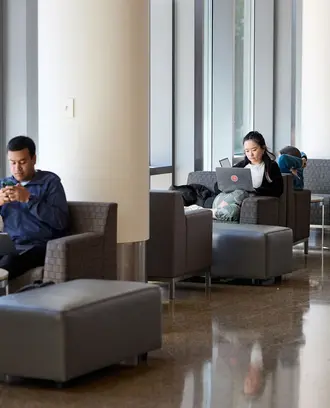With vaccine rollouts projected to take many months, and a new, more contagious strain of the coronavirus appearing around world, gasping economies are desperately in need of their own shot in the arm. Enter the COVID-19 Testing Impact Calculator. Based on a data modeling project spearheaded by MIT Associate Dean of Engineering Anette “Peko” Hosoi, the free, online calculator visually illustrates how different mitigation strategies can minimize the spread of COVID-19 and enable enterprises and communities to reopen more safely.
“The tool shows how mask wearing, distancing, and contact tracing impact the need for COVID testing,” notes Munther Dahleh in the December 2020 newsletter of the MIT Institute for Data, Systems, and Society (IDSS). “By inputting some information about these mitigation strategies, organizations like businesses, schools, warehouses, and manufacturing floors can model how many people should be tested daily and how much testing will cost per week.”
The calculator, which traces its origins to the IDSS COVID-19 collaboration Isolat, was developed with funding from the National Institutes of Health (NIH) in partnership with the Consortia for Improving Medicine with Innovation & Technology (CIMIT). CIMIT is a Boston-based network of leading medical and academic institutions that joins with industry and government to catalyze and accelerate the discovery, development, and implementation of innovative healthcare technologies.
A transdisciplinary, data-driven response to the global pandemic
CIMIT and Isolat are two examples of an increasing number of dynamic organizations that bring together technologists, clinicians, entrepreneurs, and research scientists from numerous disciplines to apply new tools and perspectives to the world’s most daunting challenges. “Isolat was a way to use our distinct assortment of interdisciplinary perspectives—along with advanced statistical and computing tools—to inform pandemic policies and ultimately slow the spread of COVID-19,” says Dahleh, the William A. Coolidge Professor of Electrical Engineering and Computer Science and Director of IDSS.
Dahleh and his colleagues are encouraging organizations of all types and sizes to use the COVID-19 Testing Impact Calculator to inform pandemic-related policies for reopening and operating throughout 2021. “Given the tough road ahead, our hope is that this tool proves useful as we continue to navigate coronavirus challenges. We look forward to feedback in the coming months and, with luck, success stories.”
Contact idss-isolat@mit.edu to learn more, pose a question, or join the collaboration.



